Stonewall slams Paddy Power’s ‘potentially dangerous’ gay footballers stunt
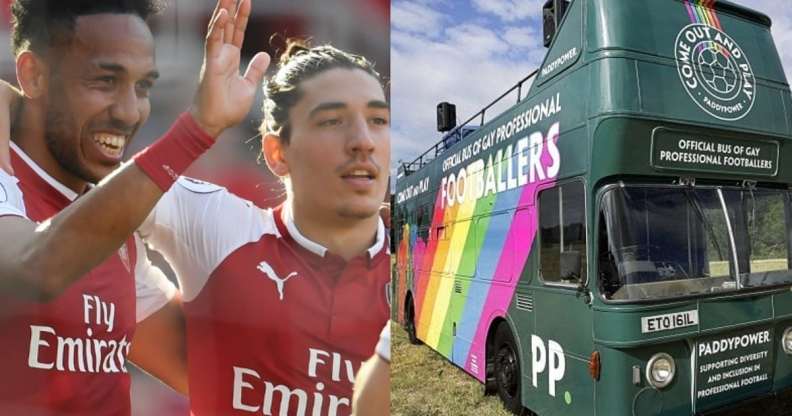
Stonewall has criticised the stunt (Mike Hewitt/Getty and Paddy Power)
Stonewall has criticised Paddy Power for a stunt created to highlight the absence of any openly gay footballers in the Premier League.
The betting company, which sponsors Stonewall’s Rainbow Laces campaign against homophobia in sport, will run an empty open-top bus through Brighton Pride that will be labelled the “official bus of gay professional footballers.”
There hasn’t been an openly gay footballer in the top tier of English football since Justin Fashanu killed himself in 1998.

No-one playing in the Premier League has come out since Fashanu
Paul Mallon of Paddy Power said that the company’s idea was meant to encourage the Premier League “to boot itself into 2018, and create a welcoming environment for its first gay player.
“We think an out gay Premier League footballer would have an extraordinary effect not just on the LGBT+ community, but society in general,” he explained.
But Stonewall has warned that the attention-grabbing act may actually make it harder for footballers to make the leap and come out.
Kirsty Clarke, Stonewall’s director of sport, has written on the charity’s site that however “well-intentioned” the action was, stunts like this one “need to stop.”
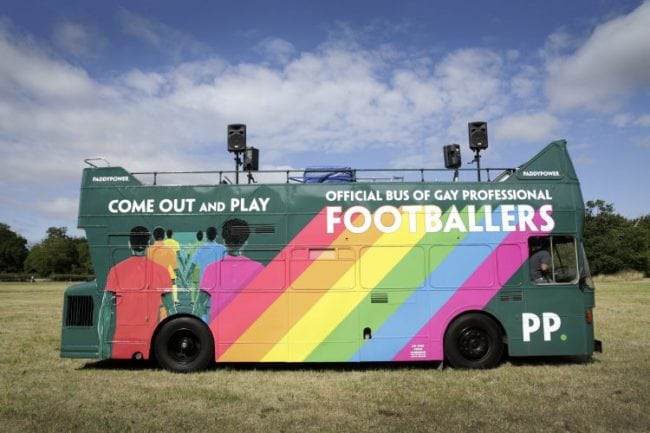
Paddy Power’s Brighton Pride bus
“Not only are they unhelpful and potentially dangerous,” she said, “they can spark a frenzy of people trying to guess what players might be lesbian, gay, bi or trans.
“This is not how we create an environment where athletes feel comfortable being open about who they are.
“Coming out must always be a personal decision. It can be difficult, takes courage and is not necessarily a one-off event,” she added.
“No one should feel pressured to come out. Speculating over why people don’t come out ignores the many valid reasons someone may have for not being open about their sexuality.
“Focusing on the absence of openly LGBT players often only adds more pressure to what is already a high-stress environment in elite sport,” warned Clarke.
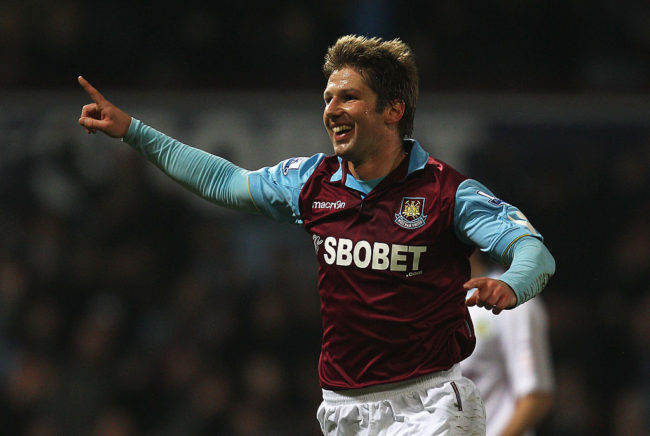
Former West Ham United player Thomas Hitzlsperger only came out after he’d retired (Paul Gilham/Getty)
“Any athlete at the top of their game knows just how much effort and sacrifice it can take to get and stay there.
“The added burden of being pressured to come out is not just damaging for the individual, but also their support network and sports itself. Many of these elite athletes also just want to be remembered for what they accomplished on the field.
“Of course having visible LGBT role models can have a hugely positive impact on sport and wider society,” she continued.
“But we need to understand and respect why not everyone can be out. We do not live in a world that is accepting of everyone’s sexual orientation or gender identity.”
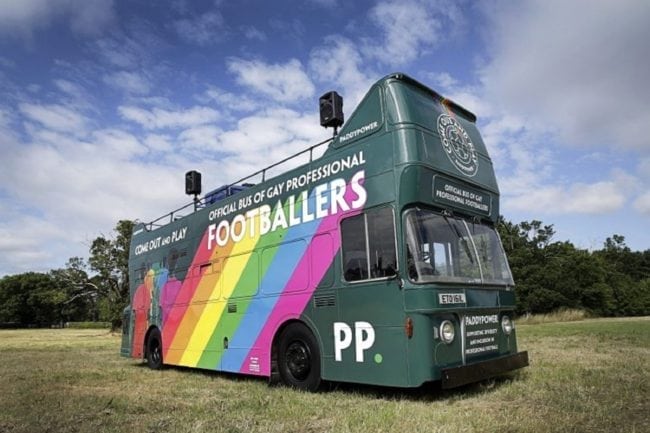
Paddy Power said it was calling out the FA with its bus
Clarke called for progress to be made across society, instead of the pressure being placed almost entirely on footballers’ shoulders.
“Footballers coming out can’t be taken as a sign of success or progress in isolation,” she wrote.
“This is only one part of a wider cultural shift. And this can’t just be about football – homophobia, biphobia and transphobia exist in all sports, and we need leaders in each sport to step up and change the culture.
“It’s everyone’s responsibility to make sport more inclusive – including companies and the media.”
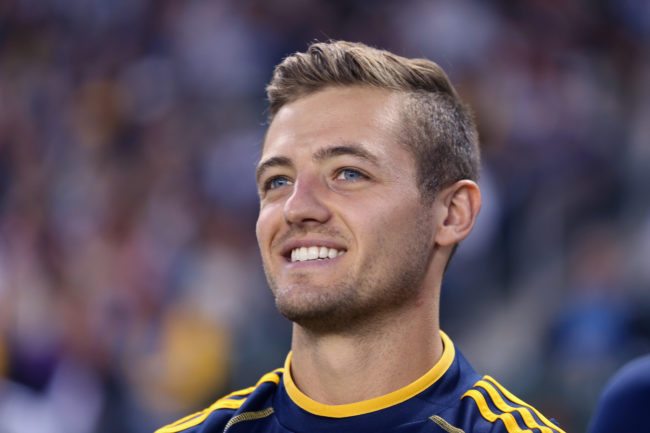
Robbie Rogers only came out after he left England (Jeff Gross/Getty)
She added: “No LGBT athlete or person should live in fear that someone might out them before they are ready.
“Only that person will know if they are comfortable and ready to come out. That choice and decision must always be respected.”
Football Association chairman Greg Clarke said in October last year that he had asked for gay footballers to meet him and talk about being a spokesman – but no-one had accepted his invitation.
“I don’t blame them for that,” he said at the time. “If they don’t feel comfortable having that conversation, it doesn’t say good things about our game.”

